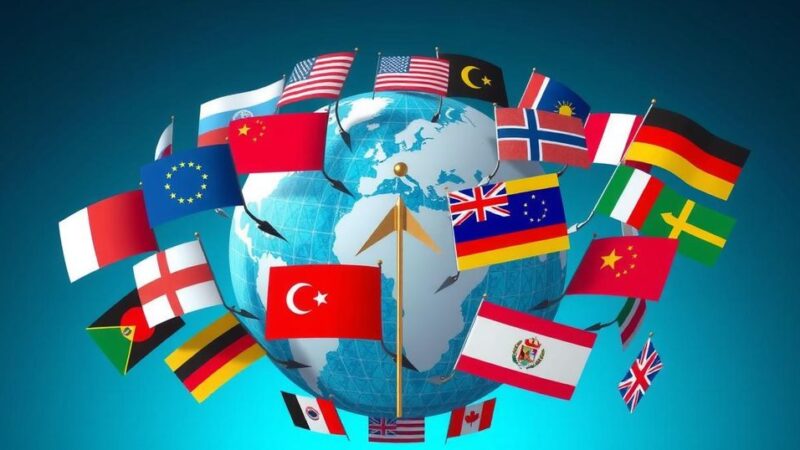J.P. Morgan downgraded Mexican stocks to “neutral” due to economic slowdown and tariffs, while upgrading Brazilian stocks to “overweight” based on potential ends to interest rate hikes and Chinese stimulus support. The economic outlook for Mexico appears challenging, while Brazil may benefit from favorable trade conditions.
J.P. Morgan has revised its stock ratings, downgrading Mexican equities from “overweight” to “neutral” and upgrading Brazilian equities from “neutral” to “overweight”. This strategic adjustment responds to concerns surrounding Mexico’s economic slowdown and the impact of U.S. tariffs, while highlighting the favorable outlook for Brazilian stocks amid a potential end to interest rate hikes and supportive stimulus measures from China.
The brokerage expressed significant concerns regarding Mexico’s economic conditions, stating that the current steep growth slowdown may lead to stagnant GDP in the initial half of the year. Recent data indicated that Mexico’s economy contracted in the last quarter of the previous year, marking its first shrinkage in over three years, with minimal growth anticipated this year amidst ongoing trade challenges.
Furthermore, the trade dynamics have shifted with U.S. President Donald Trump’s implementation of new tariffs on imports from Mexico and Canada. While these tariffs took effect recently, Trump subsequently provided exemptions for several imports from Mexico and Canada for a month, indicating an unpredictable trade policy approach.
In contrast, J.P. Morgan perceives Brazilian equities as increasingly attractive. They believe Brazil may soon conclude its interest rate hike cycle, an important development for equity performance. The central bank is expected to implement a third consecutive increase in the benchmark Selic rate during an upcoming meeting, rising to a level not seen in over eight years. Analysts suggest a potential pause in rate hikes could follow this increase.
Moreover, the ongoing trade conflict between the United States and China could further benefit Brazil by enhancing its position as a prominent exporter of agricultural products and meat. As Chinese businesses search for tariff-free imports, Brazil stands to gain from increased shipments to this significant market.
In conclusion, J.P. Morgan’s recent downgrades and upgrades reflect shifting economic landscapes in Mexico and Brazil. Mexican stocks are facing downward pressure due to economic slowdown and tariffs, whereas Brazilian equities are seen as bullish following potential interest rate stabilization and increased opportunities from Chinese imports. Understanding these market dynamics will be essential for investors looking to navigate these changes effectively.
Original Source: www.tradingview.com






